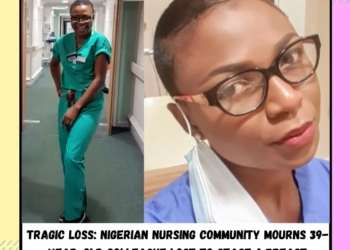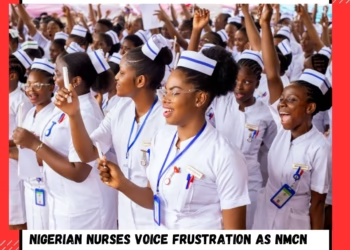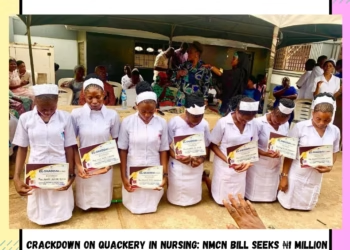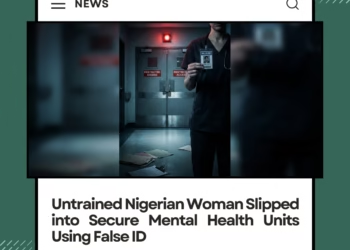
Ghana’s healthcare sector is facing a storm that could cripple its already fragile workforce. In a shocking twist, 13,500 nurses were nearly sent home due to lack of employment opportunities, while another 7,000 nurses who have been working tirelessly remain unpaid.
At the same time, the government has renewed trainee allowances—an action critics say only deepens the injustice. The message seems clear: while students are supported, trained professionals on the frontlines are left in limbo.
How do you tell a nurse who has studied, graduated, and served patients that “we didn’t employ you”—and then refuse to pay those who are already working?
Losing Faith in the System
Nurses are more than employees; they are the backbone of Ghana’s healthcare. Yet, these policies risk breaking their spirit. If thousands of nurses are pushed into unemployment or left without pay, many will inevitably lose faith in the system they dedicated their lives to serving.
The ripple effects are dangerous:
- Rising nurse unemployment despite glaring shortages.
- Brain drain, as skilled professionals seek greener pastures abroad.
- Patient care at risk, with fewer nurses available in already overstretched hospitals.
The Bigger Picture
This crisis is not about numbers alone; it’s about priorities. While Ghana renews allowances for trainees, its trained professionals—who should be stabilizing the health system—are left struggling. Healthcare cannot survive on promises alone; it demands fairness, accountability, and recognition of the very people keeping it alive.
Why It Matters
If the situation persists, Ghana could face a dangerous paradox: classrooms filled with hopeful trainees, and wards empty of professionals. The phrase “we didn’t employ you” may soon become the spark that pushes thousands of skilled nurses into unemployment or migration—further weakening an already stretched health system.
✨ Nurses deserve more than words. They deserve jobs, fair pay, and respect.
Fellow Nurses Africa is the independent voice of African nursing, we educate, inform and support nurses across Africa










